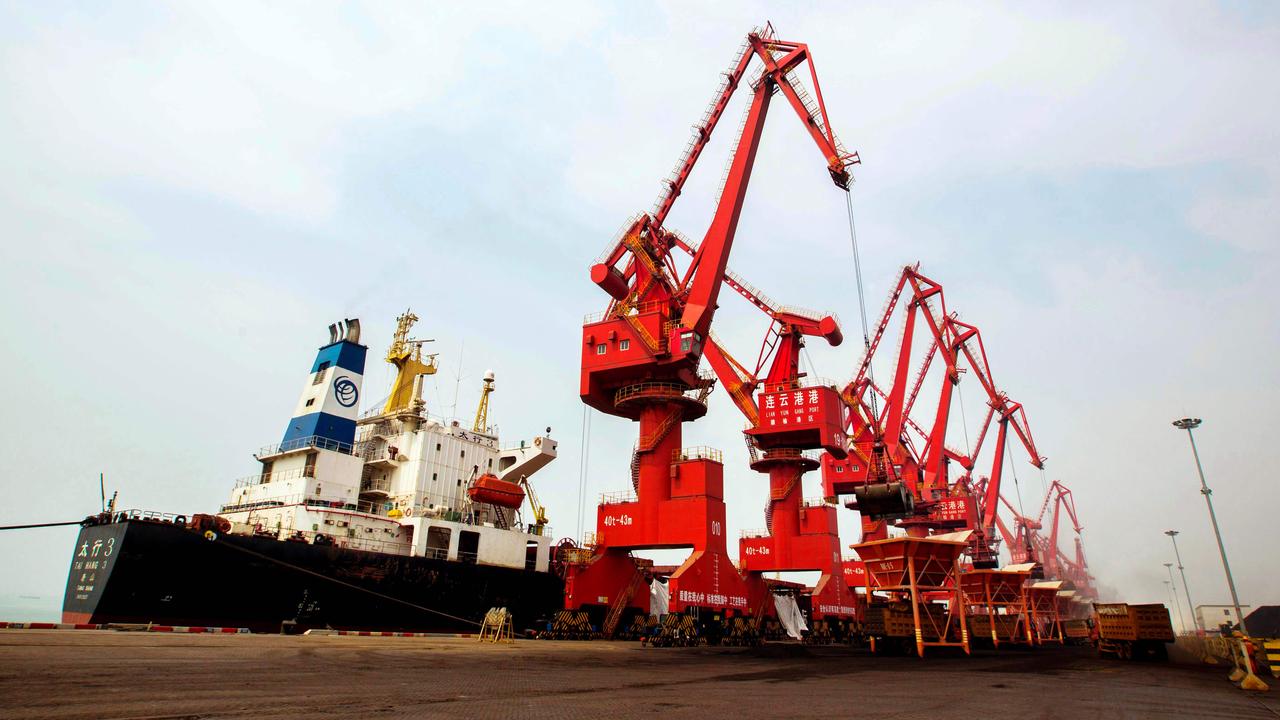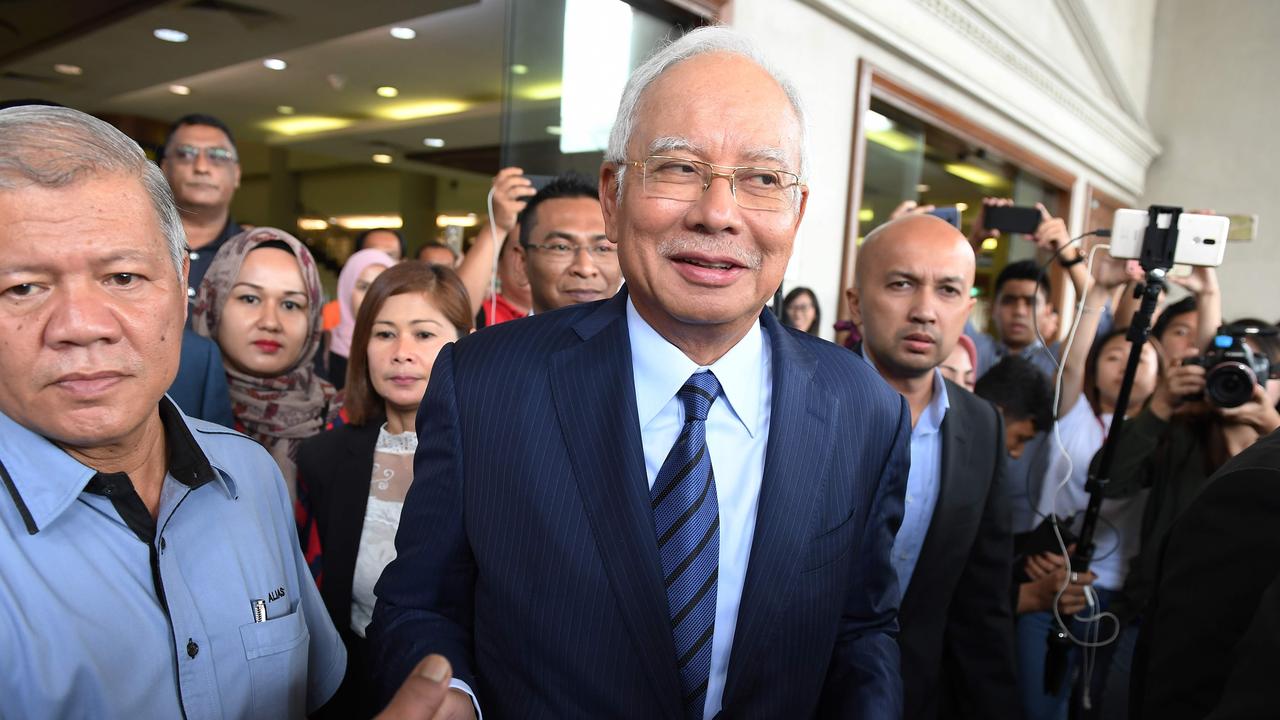China fuels 2018 optimism
How will China shape up this coming year? It is a key question for many Australian companies and governments.
How will China shape up economically in 2018? It is an important question for many Australian companies, as well as for governments — federal and state — that receive royalties, stamp duty and other taxes from Chinese trade and investment.
ANZ’s chief Greater China economist, Raymond Yeung, anticipates a slight slide in growth, while Gavekal Dragonomics researcher Ernan Cui foresees a modest rise in household consumption, after a decline this year in its growth as housing costs have consumed almost all rises in income.
The large band of China-watchers concerned about debt remain worried, but not for the short term. No one is predicting a disastrous run triggering recession in the short term — meaning the next couple of years. But the core issues they have identified remain largely unresolved.
The people responsible for managing China’s debt, its tricky, politically determined monetary policy and its fiscal armoury will be substantially changed at the important National People’s Congress meeting next March.
The new leadership team selected by President Xi Jinping, and formally approved by last month’s five-yearly Communist Party congress, will at this annual NPC meeting reshuffle the government ministers and heads of agencies. They also will announce the all-important successor to the veteran governor of the People’s Bank of China, Zhou Xiaochuan.
Debt control will top the policy agenda of the newly formed Financial Stability and Development Commission, a potentially important body that comes under the aegis of the government rather than directly under the party like the “leading small groups” and other commissions established by Xi in recent years.
The chief job of this cabinet-level commission is to co-ordinate the regulators, making sure that financial institutions, including “shadow banking” operators, and other cornerstones of the economy operate within parameters determined by the party’s central planners.
These Chinese regulators, especially the central bank, will take action when the market moves outside a “corridor” of the maximum high and low-level data that they predetermine.
Standard & Poor’s said this week that it expected bond defaults to rise as policymakers tightened risk controls in the financial system.
“Corporates are rushing to the offshore market to tap cheaper funding,” it said, as 10-year government bond yields broke the 4 per cent mark for the first time in three years and interbank loan rates jumped.
The deleveraging that the stability commission is tasked to oversee will naturally reduce growth. But Yeung believes that the emergence of “new industries” will help compensate, ensuring the economy maintains a healthy pace of about 6.5 per cent.
And the likely slowdown in investment growth next year as leverage is tightened should allow the consumption share of GDP to rise again, if moderately.
Yeung forecasts both inflation and the producer price index to rise strongly — to 3 per cent and 4.8 per cent, respectively.
He believes China’s “pro-globalisation stance has mitigated the risk of a trade war”. For instance, the Finance Ministry has announced cuts in the tariffs for 187 products, from tomorrow, from 17.3 per cent to 7.7 per cent.
Importantly for Australian shareholders, Yeung anticipates that commodity prices will continue to be supported by China’s supply-side reduction in heavy industry capacity in 2018, but not too excitingly supported: “China’s migration to a less resource-intensive growth model means we will not see a commodity super-cycle.”
Ernan Cui’s colleague, Chen Long, thinks corporate profit growth, which beat expectations this year thanks to surprisingly resilient industrial prices, could well carry through into 2018. Chen expects, like ANZ’s Yeung, “a slight moderation” in GDP growth due to the slowing housing cycle.
Such an overall framework would be good news for China. For as Chen says, “a moderate slowdown is certainly preferable to an abrupt growth crunch, which would hammer earnings”. It also is preferable to a rapid acceleration in growth, which would cause overheating and trigger greater policy tightening under the new Financial Stability and Development Commission.
This is good news, for now, for equities. Especially in Hong Kong, which is likely to outperform the mainland stock exchanges, Chen believes, because it sports cheaper valuations and attractive companies such as top Chinese online outfit Tencent.
If mortgage growth slows as expected, the drag caused by debt service costs should diminish. And outbound tourism should recover.
Cui says that while China’s transition to online retail has been rapid, it has already passed its peak growth and is maturing as a trend, lessening the pressure on offline retailers — who are better positioned to benefit from online innovations with the rapid spread of mobile payments. Thus, “the distinction between online and offline will blur”.
There was a slowdown in services spending this year, including on transport, communication, education and entertainment — with average household debt approaching the US level, of about 100 per cent of household income. Car sales slowed sharply in 2017.
Cui also points out that while the service sector can absorb lost industrial jobs, the new jobs, in small business or being self-employed, pay less and offer less security, capping wages growth.
Gavekal Dragonomics estimates that China now has about 107 million households it views as affluent — a group still growing, while those categorised as emerging or established have passed their growth peak already. This indicates what kind of products and services are more likely to grow more rapidly — probably the kind that come from Australia and come priced at a premium.




To join the conversation, please log in. Don't have an account? Register
Join the conversation, you are commenting as Logout